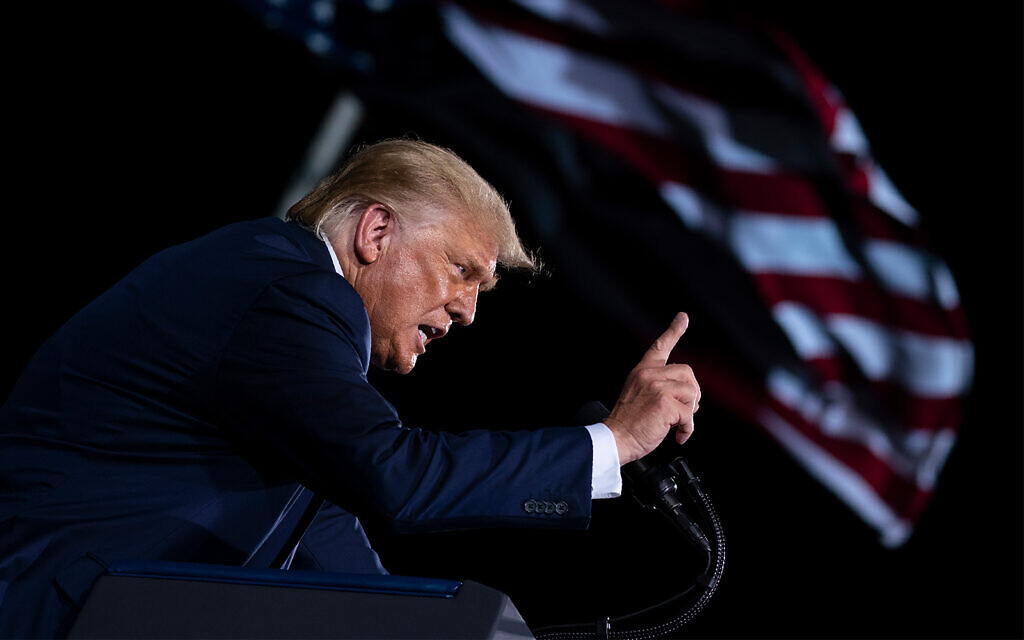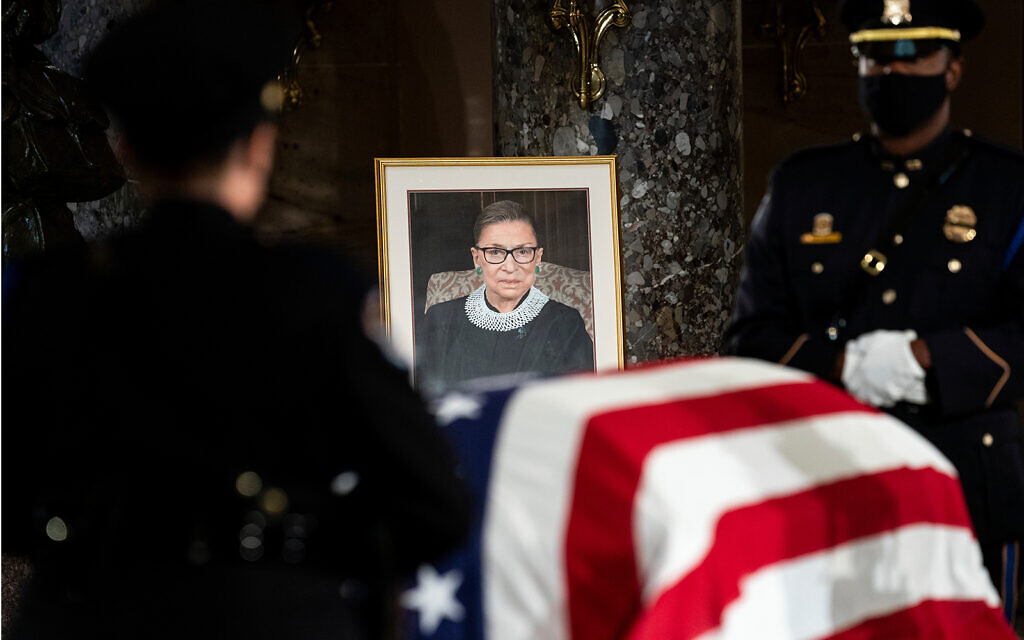WASHINGTON (AP) — Republicans are expecting US President Donald Trump to announce Saturday that he is nominating Judge Amy Coney Barrett to the Supreme Court as he aims to put a historic stamp on the high court just weeks before the election.
Conservative groups and congressional allies are laying the groundwork for a swift confirmation process for Barrett, even before Trump makes the selection official. They, like the president, are wasting little time moving to replace the late Justice Ruth Bader Ginsburg, organizing multimillion-dollar ad campaigns and marshaling supporters both to confirm the pick and to boost Trump to a second term.
The likely shift in the court’s makeup — from Ginsburg, a liberal icon, to an outspoken conservative — would be the sharpest ideological swing since Clarence Thomas replaced Justice Thurgood Marshall nearly three decades ago.
For Trump, it will provide a much-needed political assist as he tries to fire up his base. For conservatives, it will mark a long-sought payoff for their at-times uncomfortable embrace of Trump. And for Democrats, it will be another moment of reckoning, with their party locked in a bitter battle to retake the White House and the Senate.
Senate Republicans are readying for confirmation hearings in two weeks, with a vote in the full chamber now expected before Election Day. Democrats are essentially powerless to block the votes.
“I’m confident he’s going to make an outstanding nomination,” Senate Majority Leader Mitch McConnell told Fox News. “The American people are going to take a look at this nominee and conclude, as we are likely to conclude, that she well deserves to be confirmed to the US Supreme Court.”

US President Donald Trump speaks during a campaign rally in Jacksonville, Floriday, September 24, 2020. (AP Photo/Evan Vucci)
“They’re hell-bent on getting this done as fast as possible,” said Democratic Senate whip Dick Durbin. “They think it helps Donald Trump get reelected.”
Outside conservative groups, who have been preparing for this moment for 40 years, are planning to spend more than $25 million to support Trump and his nominee. The Judicial Crisis Network has organized a coalition that includes American First Policies, the Susan B. Anthony List, the Club for Growth and the group Catholic Vote.
“One of the things we’ve learned from the histories of confirmation processes, the intensity of the fight has more to do with the previous occupant of the seat than who the nominee is,” said JCN’s Carrie Severino. “We expect this to be a very high stakes confirmation.”
Within hours of Ginsburg’s death, Trump made clear his intention to nominate a woman in her stead, after previously putting two men on the court, and as he struggles to mitigate an erosion in support among suburban women.
The White House has already concluded a round of vetting this month, as Trump released an additional 20 names he would consider for the court. He has challenged Democrat Joe Biden to list possible nominees, too.
In discussing a five-person shortlist for Ginsburg’s seat, Trump has been sure to highlight some from election battleground states that he’s aiming to win this fall as much as their jurisprudence.
“I’ve heard incredible things about her,” he said of Florida’s Barbara Lagoa, a day after Ginsburg’s death. “I don’t know her. She’s Hispanic and highly respected. Miami. Highly respected.”
In an interview with a Detroit television station, he volunteered that hometown Justice Joan Larsen is “very talented.”

The flag-draped casket of Justice Ruth Bader Ginsburg lies in state in the US Capitol, Sept. 25, 2020. (Erin Schaff/The New York Times via AP, Pool)
Trump and his aides, though, appeared to have set their sights on nominating Barrett, of Indiana, who was at the White House twice this week, including for a Monday meeting with Trump.
The staunch conservative’s 2017 appeals court confirmation, on a party-line vote, included allegations that Democrats were attacking her Catholic faith. Trump allies see that as a political windfall for them should Democrats attempt to do so once again. Catholic voters in Pennsylvania, in particular, are viewed as a pivotal demographic in the swing state that Democratic nominee Joe Biden, also Catholic, is trying to recapture.
Vice President Mike Pence defended Barrett when asked whether her affiliation with People of Praise, a charismatic Christian community, would complicate her ability to serve on the high court.
“I must tell you the intolerance expressed during her last confirmation about her Catholic faith I really think was a disservice to the process and a disappointment to millions of Americans,” he told ABC News.
Though the court can break down along ideological lines in high-profile cases, Chief Justice John Roberts and his colleagues resist the idea they are politicians in robes and emphasize that they agree more than they disagree.
Still, Barrett’s appointment would make the court more conservative. It would be transformed from a court divided 5-4 between conservatives and liberals to one in which six members are conservatives appointed by Republican presidents. Barrett has been hailed as a justice in the mold of Antonin Scalia, for whom she clerked.
Trump played up the power to make judicial nominations with conservative voters in 2016, when Republican senators kept open the seat vacated by the death of Scalia rather than let president Barack Obama fill the opening.
Trump’s decision to release lists of accomplished conservative jurists for potential elevation was rewarded by increased enthusiasm among white evangelical voters, many of whom had been resistant to supporting the candidacy of the one-time New York Democrat.
Related posts:
Views: 1
 RSS Feed
RSS Feed

















 September 26th, 2020
September 26th, 2020  Awake Goy
Awake Goy  Posted in
Posted in  Tags:
Tags: 
















